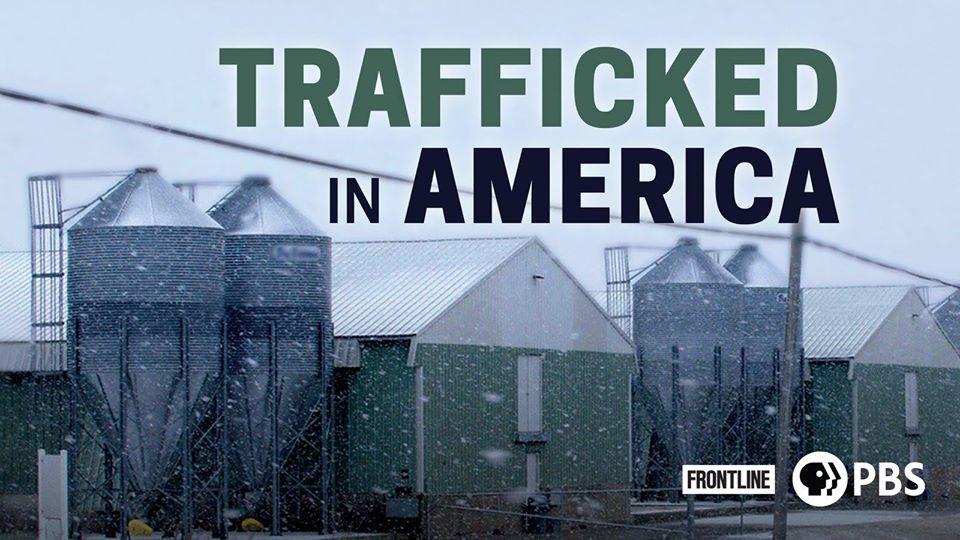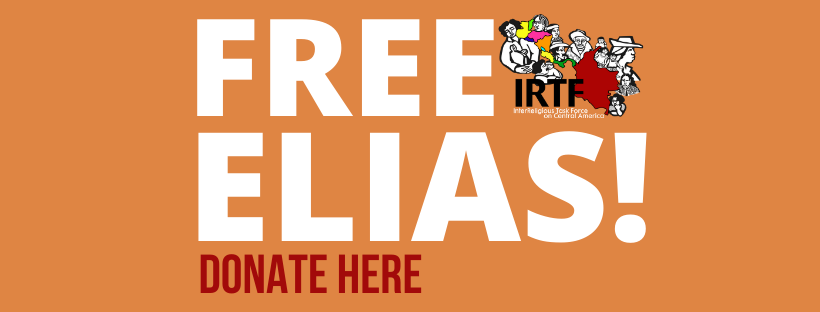- Home
- About Us
- Issues
- Countries
- Rapid Response Network
- Young Adults
- Get Involved
- Calendar
- Donate
- Blog
You are here
Guatemala: News & Updates
Guatemala had the longest and bloodiest civil war in Central American history: 36 years (1960-96). The US-backed military was responsible for a genocide (“scorched earth policy”) that wiped out 200,000 mostly Maya indigenous civilians. War criminals are still being tried in the courts.
Learn more here.
Event
March 12, 2020
Frontline's "Trafficked in America" screening and discussion. Human trafficking is happening in Ohio. How can we be alert to this crime and what can we do change this alarming trend?
All are welcome to this free event.
Trafficked in America (2018) . 53 mins
The inside story of Guatemalan teens forced to work against their will in Ohio. An investigation of labor trafficking exposes a criminal network that exploited undocumented minors, companies profiting from forced labor, and the US government's role.
News Article
March 4, 2020
Fearing for his life, a thin, curly-haired 25-year-old fled to the United States-Mexico border and requested asylum. After nine days in custody, he was put on a plane in McAllen, Texas, and sent to Guatemala. American authorities explained that he would wait there for an “initial screening,” the first step in the U.S. asylum process, and eventually return to stand before a U.S. judge, he said. But it wasn't true. The U.S. government sent him here to apply for Guatemalan asylum under a new Trump administration policy that puts migrants into this Central American country's bare bones asylum system with few resources and fewer options. From the program's start in November through last week, the U.S. government shipped 683 asylum-seekers to Guatemala. That is more than double the number of asylum-seekers processed by Guatemala in all of 2018. But only 14, or about 2% of the foreigners actually pursued asylum here.
RRN Letter
February 25, 2020
Attorney Esteban Celada provides legal representation in many sensitive cases concerning crimes against humanity, organized crime, sexual violence and femicide. He collaborates with Mujeres Transformando el Mundo (Women Transforming the World) and several other human rights organizations in Guatemala. Between May 8, 2019 and February 5, 2020, Esteban Celada experienced at least 27 security incidents, including persistent surveillance. One of these incidents occurred on the night of December 21, 2019. Unknown individuals broke into his house while he was away and searched his belongings, especially documents related to his legal work.
Esteban Celada is a member of the Group of Litigators against Torture in Latin America (Grupo de Litigantes contra la Tortura en América Latina), an initiative led by lawyers from 10 Latin American countries, who work to combat the systematic use of torture in the region.
RRN Letter
February 23, 2020
Indigenous rights defender Julio Gómez Lucas is currently facing false criminal charges of incitement to commit crimes, participation in illegal gatherings of armed persons, protests, assault and attempted murder. The criminalization of environmental and indigenous defenders in Guatemala must end. Julio Gómez Lucas, a leader of the Maya Chuj community of San Mateo Ixtatán, is a member of the Peaceful Resistance of the Microregion of Ixquisis, an organization of indigenous communities formed in response to human rights violations committed by a hydroelectric company. He and his family members have previously been kidnapped and tortured because of his work in defense of land, water, and indigenous rights.
News Article
February 21, 2020
Good news... WE JUST PAID ELIAS'S BOND!
Friends, family, and fellow members of the movement,
We did it! Elias will be free from immigration detention after 6 months of incarceration. We are proud of our work but even more, we are proud of Elias and his perseverance in the face of vast injustice.
News Article
February 17, 2020
After an irregular rainy season and an unpromising harvest, almost 80% of maize grown in Guatemala’s highland region was lost, according to Oxfam. All that remains for many families are tiny corncobs studded with discoloured grains that look like rotten teeth. Central America is one of the world’s most dangerous regions outside a warzone, where a toxic mix of violence, poverty and corruption has forced millions to flee north in search of security. The threat of famine and the battle for dwindling natural resources are increasingly being recognised as major factors in the exodus
Event
February 15, 2020
SEPA is a volunteer organization that raises money through participation in the Oberlin Farmers Market, through the sale of textiles hand-woven in CopalAA and elsewhere, through a B&B program in Oberlin, and through donations from individuals and churches.
News Article
February 14, 2020
“José” is an award winning film from Guatemala about a young gay man’s struggles to find love in a socially conservative, homophobic society. “José” opens this Friday in South Florida theaters. But its star, Guatemalan actor Enrique Salanic, won't be here for the film's American premiere, as he'd hoped. That's because the U.S. has denied Salanic a visa to enter the country. “José” won the Queer Lion at the Venice Film Festival – the prize for the best LGBTQ-themed movie. But this film is different from a lot of films about gay people in Latin America. The homophobia is certainly felt. But the story focuses more on how hard it is for a gay man to secure a loving relationship there.
News Article
February 13, 2020
Study finds 42.5% interviewees leaving Guatemala, Honduras and El Salvador reported the violent death of a relative “We’re speaking of human beings, not numbers,” Sergio Martín, MSF general coordinator in Mexico, said at the study’s presentation on Tuesday. “In many cases, it’s clear that migration is the only possible way out. Staying put is not an option.” A 2019 survey from Creative Associates International found violence was the main driver of migration for 38% of Salvadorans, 18% of Hondurans and 14% of Guatemalans. In Guatemala – the main source of migrants detained at the US border with Mexico – 71% of respondents cited “economic concerns” as their main motive.
RRN Case Update
February 13, 2020
RRN case summaries at a glance
On behalf of our 190 Rapid Response Network members, IRTF volunteers write and send six letters each month to government officials in southern Mexico, Colombia, and Central America (with copies to officials in the US).
Who is being targeted? indigenous and Afro-descendant leaders, labor organizers, LGBTI rights defenders, women’s rights defenders, journalists, environmental defenders, and others.
By signing our names to these crucial letters, human rights crimes are brought to light, perpetrators are brought to justice and lives are spared. Our solidarity is more important than ever. Together, our voices do make a difference.



